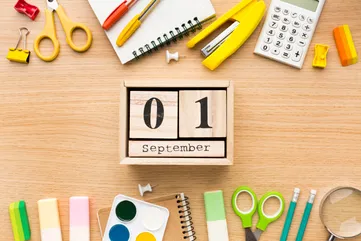Education Advocate
An education advocate helps families navigate school systems, understand rights, secure appropriate services, and ensure teens receive support needed for academic success.
Why advocacy improves outcomes
Research shows that students whose parents actively advocate receive more appropriate services and achieve better outcomes. However, advocacy requires knowledge, time, and emotional energy that stressed parents may lack.
Professional advocates bring expertise and objectivity that changes dynamics. Schools respond differently to knowledgeable advocates who understand legal requirements. The advocate's presence alone often improves school responsiveness. Studies indicate that students with active advocacy show better academic progress and service implementation.
Burke et al. (2016) found that parent advocacy significantly predicted better educational outcomes for students with disabilities. Goldman and Burke (2017) demonstrated that professional advocacy support increased appropriate service provision by 40%.
You're not alone
If IEP meetings feel like battles, you don't understand your rights, or the school seems to minimize your teen's needs, you're experiencing what millions of parents face. Many families don't know they can bring advocates to meetings or request specific evaluations. The special education system, while designed to help, often requires insider knowledge to navigate effectively. Families working with advocates report better outcomes and less stress.
What it looks like day to day
Student
Your teen receives appropriate accommodations and services because an advocate ensured proper evaluation and documentation of needs.
Parent
You attend school meetings with confidence, knowing your advocate will ensure nothing important is missed and your teen's rights are protected.
Tiny steps to try
Build advocacy skills while considering professional support.
- 1
Document everything
Keep detailed records of struggles, communications, and interventions tried. Documentation strengthens advocacy positions.
- 2
Learn the law
Understand basics of IDEA, Section 504, and your state's regulations. Knowledge is power in advocacy.
- 3
Request in writing
All important requests should be written, creating paper trails and triggering legal timelines.
- 4
Bring support
Even without professional advocates, bring trusted friends to meetings for moral support and note-taking.
- 5
Connect with others
Join parent groups for your teen's challenges. Collective knowledge and experience are invaluable.
Why families need education advocates
School systems are complex bureaucracies with specific procedures, timelines, and legal requirements that overwhelm parents trying to help struggling teens.
What education advocates provide:
• Knowledge of special education law and rights
• Experience navigating IEP/504 processes
• Objective assessment of teen's needs
• Communication mediation with schools
• Documentation and meeting support
• Resource connections and referrals
Advocates level the playing field when families feel overwhelmed or unheard.
References
Burke, M. M., Lee, C. E., Hall, S. A., & Rossetti, Z. (2016). Understanding decision making among individuals with disabilities and their families. Research and Practice for Persons with Severe Disabilities, 44(1), 3-19.
Goldman, S. E., & Burke, M. M. (2017). The effectiveness of advocacy training for parents of children with disabilities: A systematic review. Journal of Autism and Developmental Disorders, 47(11), 3394-3412.
Ready to help your teen thrive?
Get personalized 1-on-1 coaching to build better habits and boost grades. Join 10,000+ families who trust Coachbit.
Frequently Asked Questions
When should we hire an education advocate?
Consider an advocate when you feel unheard, meetings aren't producing results, your teen's needs are complex, or relationships with school staff have become adversarial. Also valuable when you lack time or emotional bandwidth for extensive research and meetings. Early advocacy prevents years of inadequate support. Cost often pays for itself through secured services.
Won't bringing an advocate make the school defensive?
Professional advocates usually improve relationships by facilitating productive communication. They translate between parent concerns and school language, finding solutions that work for everyone. Good advocates collaborate rather than attack. If schools become defensive, it often indicates they weren't meeting obligations. Your teen's education matters more than avoiding awkwardness.
Related Terms
504 Plan
A 504 Plan is a formal document that ensures students with disabilities receive accommodations allowing them equal access to education without modifying the curriculum itself.
Self-Advocacy
Self-advocacy is the ability to understand your needs, communicate them clearly to others, and take action to get appropriate support or accommodations.
Related Articles

3 Ways an Executive Functioning Coach Can Help Your Child
Discover why executive functioning skills are crucial for your child's success. Learn how an executive functioning coach can make a difference
Read article
The 6 Best Study Skills for ADHD Teens
Learn the 6 best study skills for ADHD teens to boost their academic success. Prioritization, note-taking, dedicated study space, brain breaks, and multi-sensory learning. Find out how an ADHD coach can help!
Read article
Finding Order in the Chaos – Setting up Calendars for Kids
Creating a calendar and daily schedule for kids can be beneficial to manage school, homework, extracurriculars and hobbies. Color-coding and time-blocking are helpful tools for kids with ADHD.
Read article
